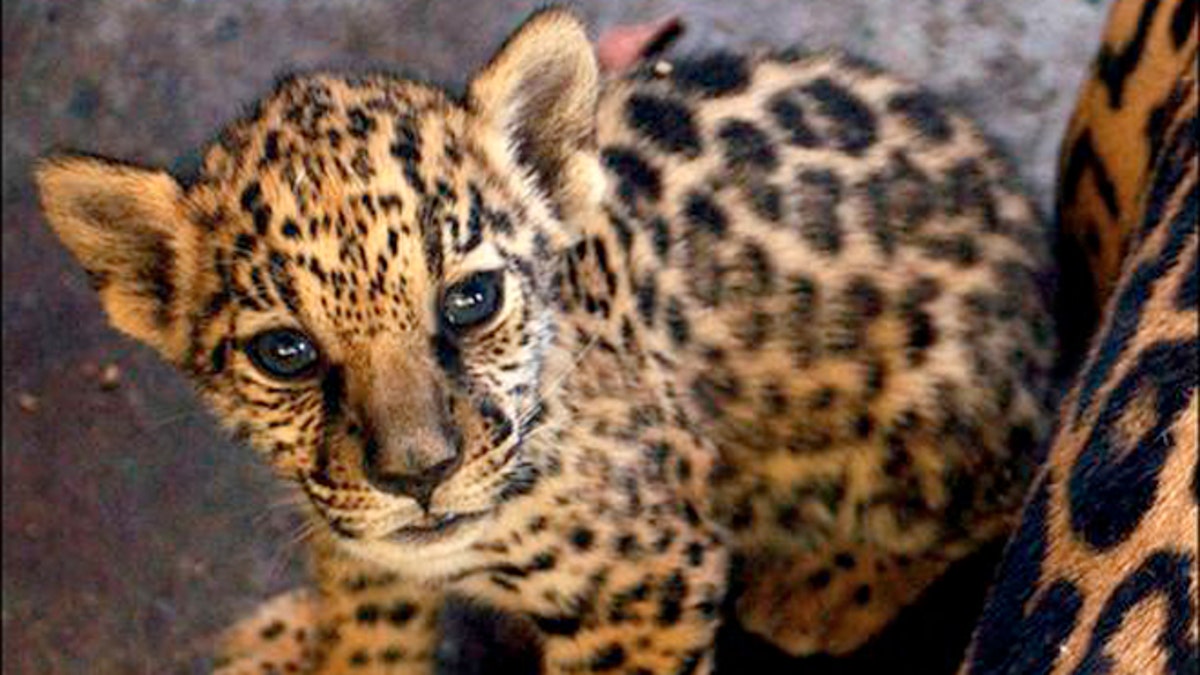
Ramses, a three-month-old Jaguar, is seen in the National Zoo in Managua, Nicaragua, Wednesday, Feb. 16 2005. The zoo is in need of more aid for the maintenance of the animals. (AP Photo/Esteban Felix)**EFE OUT** ((AP Photo/Esteban Felix))
Bolivian authorities are concerned that the increasing demand for jaguar teeth in China is threatening the lives of the jungle cat.
According to a recent report by the Bolivian Environment Forum, authorities in the Andean nation seized 800 jaguar teeth between 2014 and 2016 – putting the number of jaguars killed around 200 or around the same number as during the 1980s when hunting the large felines was still legal.
Over the last 30 years a campaign to stop the poaching of jaguars has been hugely successful in Bolivia. But animal rights activists says they have seen the tide change as more and more Chinese nationals visit areas like the Madidi and Pilón Lajas natural reserves.
"When tourism was growing and raising people's awareness regarding laws and preservation, there were very few cases,” activist Daniel Manzaneda said, according to Insight Crime. "But since the Chinese came they've been killing them by the dozen, as well as ocelots, snakes and who knows what other species."
The teeth are used to make gold jewelry. But in traditional Chinese medicine it is also used as a cure for ailments like rheumatism. One Chinese citizen was arrested in Bolivia in May after he bought a radio announcement in the Rurrenabaque municipality offering to buy jaguar teeth for $100 apiece.
The illegal poaching of jaguars is exacerbated by remoteness of their habitats and the large size of the reserves. The Madidi and Pilón Lajas natural reserves consist of an area that is more than 98,000 acres and yet there are only 12 park rangers employed to patrol the region.
Adding to the difficulties is the fact that the trafficking routes that lead out of the reserves go through a veritable no-man’s land near the border with Peru.
"Brazilian mafiosos and Peruvians enter and traffic as they please,” a local police officer said. “Now we're also seeing Chinese people, I don't know if they're competition or if they have agreements."
Experts say that the revelation of Chinese smugglers hunting for jaguar teeth in Bolivia is just the latest sign of organized crime groups from the Asian nation becoming involved in wildlife trafficking in Latin America as the demand for exotic food and other goods grows in their home nation.
Earlier this year, Mexican federal agencies stepped up patrols and monitoring in the Upper Gulf of California to protect the Gulf of California harbor porpoise, a rare marine mammal known in Mexico as the "vaquita" (sea cow), and fight trafficking of the totoaba, an endangered fish species that is highly prized in China.
The United Nations and other international bodies have pressured China to crack down on wildlife trafficking and Beijing has responded with a successful ad campaign that has reduced the consumption of some endangered species, but groups like the World Wildlife Fund still say trafficking to the country is rampant.








































